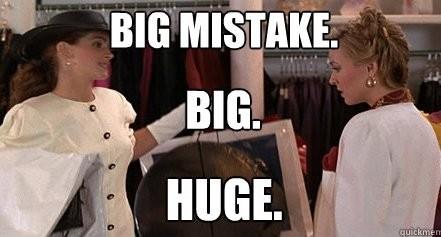“The World Has Changed” – What Was Our Biggest Mistake?
Authored by Richard Breslow via Bloomberg,
This is going to take time. Sorry to have to say it, but patience will be required and undoubtedly tested. By far the best thing that central banks can do is keep the global financial and funding markets functioning and not especially worry about whether the stock market, within some reason, has a good or bad day. We need to keep our eye on the ball. Unfortunately, the reality is that, until the virus starts to visibly recede, the best we should plan for is getting by as best we can.
The worst mistake that was made up until now was trying to pretend that it was business as usual.
I was reading through my emails and IBs this morning and was really surprised how many people essentially asked whether I thought the Fed‘s move over the weekend would “solve” the problem. What an extraordinary example of how we have been conditioned. The Fed can’t fix this. They can just help us get through it. It also was striking, how few people brought up the coordinated actions by multiple central banks. This is a global problem. The Fed isn’t in this alone. To think that way, misses the whole point. And, not to beat a dead horse, there will have to be some action on the fiscal policy side. We’ve seen that global monetary policy can be somewhat synchronized. Now we will see if the politicians can do the same.
One thing you can be sure of is that trying to trade these markets is unlikely to be easy. Equities will most likely be heavy. They should be. The real economy is taking a hit. I am not sure whether it is optimistic thinking or smart analysis, but, with so many analysts calling for a sharp rebound come H2, traders will continue to look for the dips to buy. There are going to be a lot of head fakes. If you must play things from the long side, buy a little bit and see how it feels. This is not an all or nothing situation.
Currencies will behave idiosyncratically. Try to avoid making blanket statements about what is or is not a safe haven. It is going to change based on the medical news and how different economies weather the challenges facing them. And it is unlikely to be apparent in a straight line. Are events euro positive or negative? It will change with the news. Will there be dollar shortages or will the swap lines be sufficient? These are the sorts of questions that need to be asked over and over. Not whether interest rate differentials have changed. It is hard, however, to see how emerging markets can avoid staying under pressure. At least until there is greater clarity. Supply chains will be difficult to keep functioning as we know them.
The world has changed, for the foreseeable future. Before planning what and when to buy, or, perhaps sell, for that matter, think about what assumptions we usually rely upon are applicable in this situation. This really is a time to think before you leap. As we all should.
Tyler Durden
Mon, 03/16/2020 – 09:15
via ZeroHedge News https://ift.tt/38W10g5 Tyler Durden
